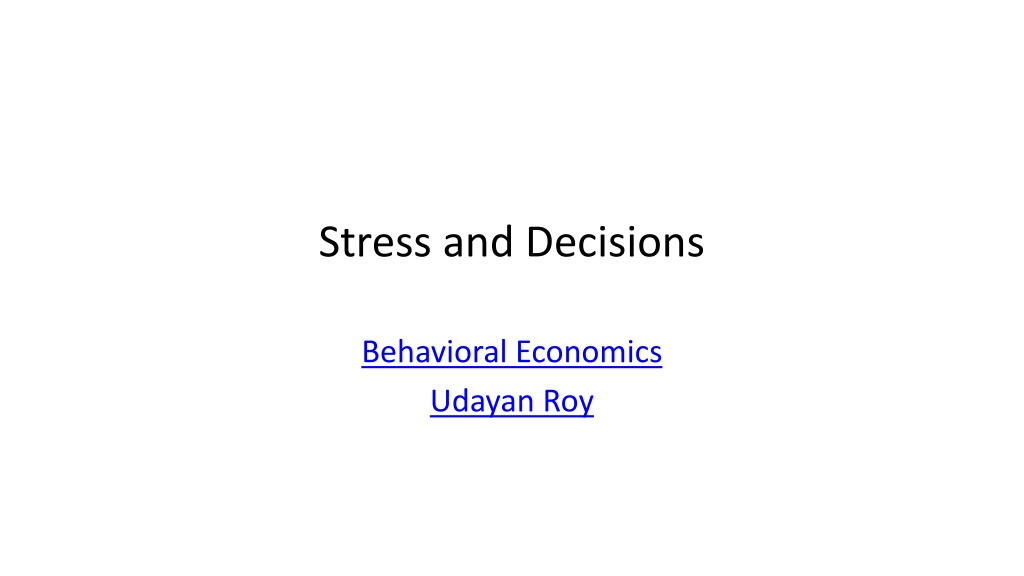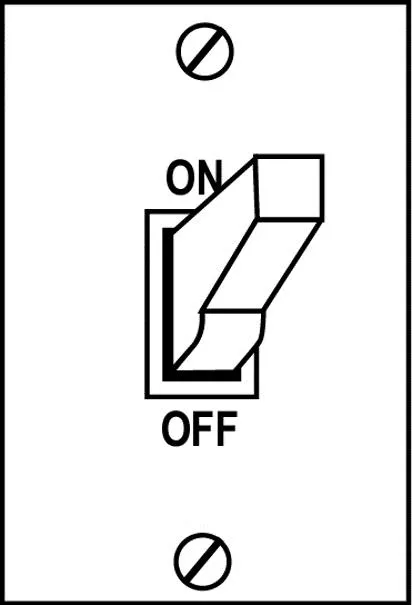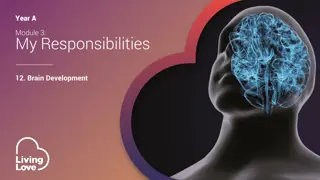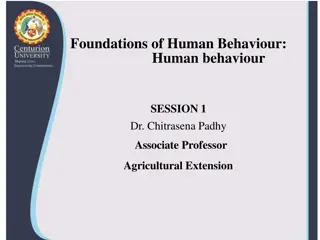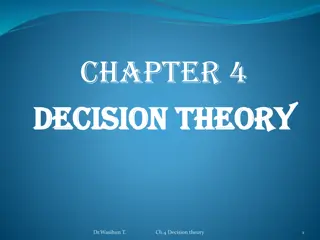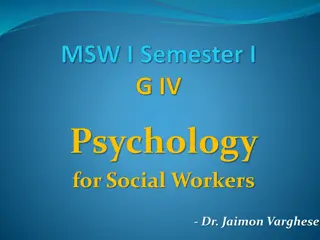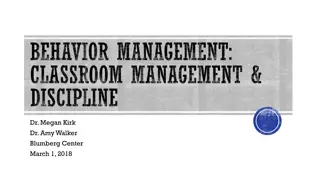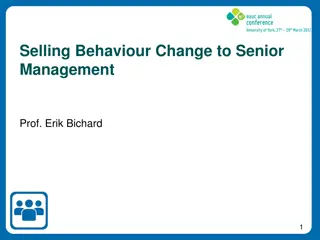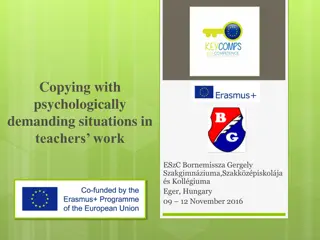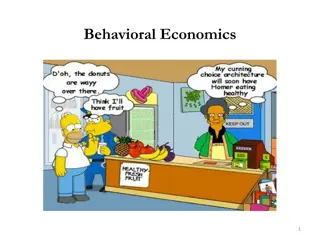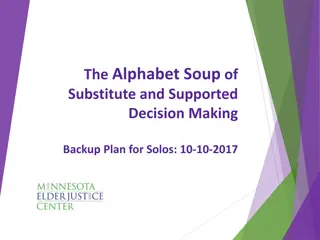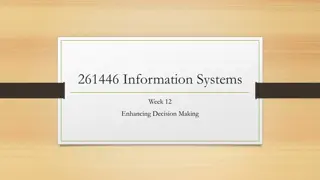Insights into Decision Making and Behavior in Stressful Situations
Explore the impact of stress on decision-making processes through behavioral economics studies. Learn how stress can shift individuals from reflective to automatic decision states and how affective and deliberative systems influence choices. Dive into experiments by researchers like Dr. Baba Shiv and Dr. Alexander Fedorikhin regarding self-control conflicts and cognitive loads affecting food choices.
Download Presentation

Please find below an Image/Link to download the presentation.
The content on the website is provided AS IS for your information and personal use only. It may not be sold, licensed, or shared on other websites without obtaining consent from the author. Download presentation by click this link. If you encounter any issues during the download, it is possible that the publisher has removed the file from their server.
E N D
Presentation Transcript
Stress and Decisions Behavioral Economics Udayan Roy
Stress can change you Stress can push a person from the reflective state to the automatic state Conversely, de-stressing can save you from the automatic state
Affective and Deliberative Conflict If self-control in decision making is the outcome of a conflict between the deliberative and the affective systems, what happens if the deliberative system is busy with another task? An experiment to test this was conducted by Dr. Baba Shiv (University of Iowa) and Dr. Alexander Fedorikhin (Washington State University). Shiv, B. & Fedorikhin, A. (1999). Heart and mind in conflict: The interplay of affect and cognition in consumer decision making. Journal of Consumer Research, 26(2), 278-292.
An experiment with numbers and cake Shiv & Fedorikhin (1999) 1. Memorize a two-digit number (Group A) or seven-digit number (Group B). 2. Walk to a table and choose between two desserts, chocolate cake and fruit salad. 3. Walk to another room and repeat the memorized number. OR
What do you think? Which group was more likely to choose the chocolate cake? a) Group memorizing 2-digit number b) Group memorizing 7-digit number chose chocolate cake c) Both were equally likely OR
When the deliberative self is busy Group memorizing 2-digit number chose chocolate cake 41% of the time Group memorizing 7-digit number chose chocolate cake 63% of the time OR
An experiment with art and cookies Experiment with undergraduate female participants who were dieting. Group A asked to memorize 60 art slides in preparation for a recognition test. Group B had no memory task. Conducted by Dr. Andrew Ward (Swarthmore College) and Dr. Traci Mann (UCLA). Ward, A., & Mann, T. (2000). Don t mind if I do: Disinhibited eating under cognitive load. Journal of Personality and Social Psychology, 78(4), 753-763.
An experiment with art and cookies Participants in both conditions were requested to have a snack as part of the experiment. Left with large bowls of Doritos, M&M's, and chocolate chip cookies during the 10- minute task. M and Ms.jpg
An experiment with art and cookies Which group ate more of the snacks? a) Group A (asked to memorize 60 art slides) b) Group B (no memory task) c) Both group about the same Dr. Andrew Ward (Swarthmore College) and Dr. Traci Mann (UCLA). Ward, A., & Mann, T. (2000). Don t mind if I do: Disinhibited eating under cognitive load. Journal of Personality and Social Psychology, 78(4), 753-763.
An experiment with art and cookies Grams of Snacks Eaten During 10- 60 50 Minute Task 40 30 20 10 0 A (memory task) B (no memory task)
De-Stressing Take a deep breath! Count backwards: 100, 99, 98, Meditate This might bring you back to your reflective state
Judges are kinder after a meal! Researchers followed eight Israeli judges for ten months as they ruled on over 1,000 applications made by prisoners to parole boards. The plaintiffs were asking either to be allowed out on parole or to have the conditions of their incarceration changed.
Judges are kinder after a meal! Decision making is mentally taxing and that, if forced to keep deciding things, people get tired and start looking for easy answers. In this case, the easy answer is to maintain the status quo by denying the prisoner s request.
Sleep on it! Don t make an important, life-changing decisions when you are tired, stressed out, or hungry!
